While some Russian hackers are feared by the entire Western world, other Russians are taking over the Net. The company Qrator Labs, founded by immigrants from Russia, set out to protect the network space from DDoS attacks. The main problem with DDoS is that this kind of network attack is easy enough and inexpensive. And the results can be the most unpleasant - from increasing fees for increased traffic from the provider, to the inaccessibility of the resource for millions of users around the world.
In which country, ordinary Internet users will be least affected by a massive DDoS attack if this happens? Qrator Labs specialists compiled ranking of countries with the most sustainable Internet in 2018... They were based on the number and strength of connections that a global provider forms with smaller providers, and those between themselves, over the IPv4 protocol. And there are two important reasons for this:
- The pool of IPv4 addresses ended in 2012 and the global Internet is gradually switching to a new protocol, IPv6. However, the latter is still not well protected against massive network attacks.
- Moreover, most providers in the world simply do not have the ability to provide users with uninterrupted and fast communication using the new protocol.
10. Bangladesh
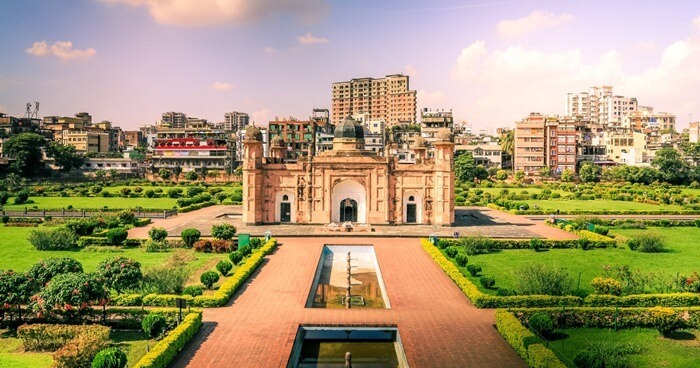 Opens the top ten countries with the most stable Internet one of the poorest countries in the world... Despite the low standard of living, over the past two decades, the number of Internet users in Bangladesh has grown significantly and reached 80.5 million. But in the early 90s, the number of lucky ones with access to the world wide web barely numbered 500 people.
Opens the top ten countries with the most stable Internet one of the poorest countries in the world... Despite the low standard of living, over the past two decades, the number of Internet users in Bangladesh has grown significantly and reached 80.5 million. But in the early 90s, the number of lucky ones with access to the world wide web barely numbered 500 people.
If suddenly the main provider of Bangadesh collapses, users of only 4.81% of local providers will return to the past.
9. France
 Although in the country of baguettes and berets, more than 80% of households are braided by the World Wide Web, there are still islands without the Internet. Residents of remote rural regions are forced to catch the Internet from a satellite. And its quality, frankly, is so-so. In order not to deprive its rural workers of one of the main benefits of civilization, the government decided to use WiMAX. In the event of large-scale problems with "DOSING", the new series "The Witcher" from Netflix with Henry Cavill in the title role will not be able to be watched by users of only 4.55% of French providers.
Although in the country of baguettes and berets, more than 80% of households are braided by the World Wide Web, there are still islands without the Internet. Residents of remote rural regions are forced to catch the Internet from a satellite. And its quality, frankly, is so-so. In order not to deprive its rural workers of one of the main benefits of civilization, the government decided to use WiMAX. In the event of large-scale problems with "DOSING", the new series "The Witcher" from Netflix with Henry Cavill in the title role will not be able to be watched by users of only 4.55% of French providers.
8. Canada
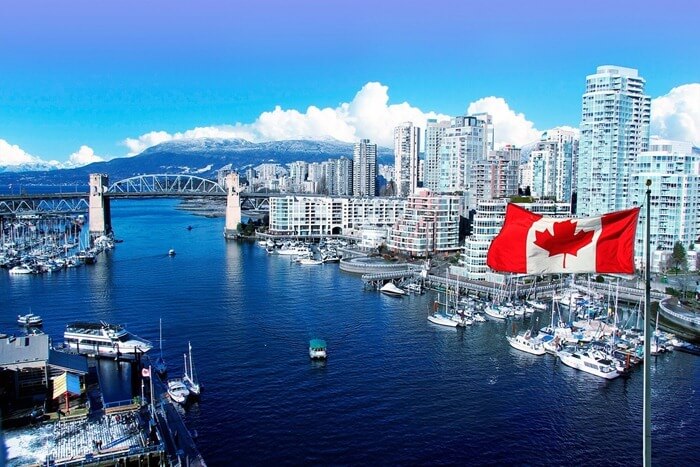 Despite its length and relative sparseness, 31.77 million people use the Internet in Canada - this is almost 90% of all residents. Unsurprisingly, the average Canadian spends an average of 45 hours a month on the Internet - more than any other country. If suddenly the transatlantic cable is cut or something out of the ordinary happens, 4.12% of users of local providers will suffer without the Internet.
Despite its length and relative sparseness, 31.77 million people use the Internet in Canada - this is almost 90% of all residents. Unsurprisingly, the average Canadian spends an average of 45 hours a month on the Internet - more than any other country. If suddenly the transatlantic cable is cut or something out of the ordinary happens, 4.12% of users of local providers will suffer without the Internet.
7. USA
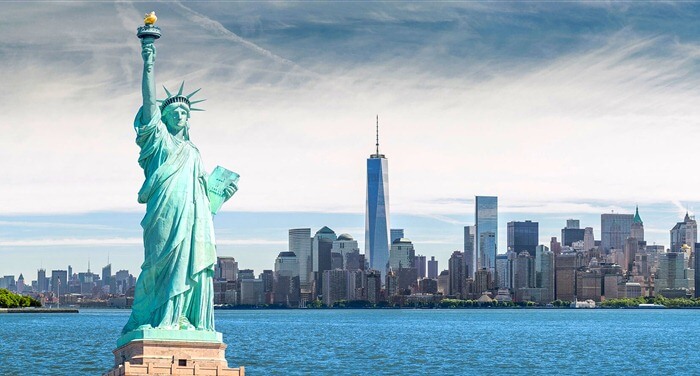 The United States has a stable first place in the number of local providers - there are more than 7,000 of them. Almost 97.5% of Americans make regular travels on the world wide web. It's no wonder that with so many providers, the Internet in the US is pretty resilient.Only 4.02% of providers and their users are in danger of losing their connection with the world.
The United States has a stable first place in the number of local providers - there are more than 7,000 of them. Almost 97.5% of Americans make regular travels on the world wide web. It's no wonder that with so many providers, the Internet in the US is pretty resilient.Only 4.02% of providers and their users are in danger of losing their connection with the world.
6. Belgium
 An Internet user lives well in Belgium. The country consistently ranks first in the world in terms of the number of landline and mobile Internet users, as well as the number of providers. Although this wealth is not cheap for a common user. Until recently, Belgian providers used to beat their subscribers in three skins for exceeding a certain download size. But in general, the Internet in Belgium is very stable - and if they sometimes have something somewhere, users of 3.88% of providers will not be able to enjoy their favorite memes.
An Internet user lives well in Belgium. The country consistently ranks first in the world in terms of the number of landline and mobile Internet users, as well as the number of providers. Although this wealth is not cheap for a common user. Until recently, Belgian providers used to beat their subscribers in three skins for exceeding a certain download size. But in general, the Internet in Belgium is very stable - and if they sometimes have something somewhere, users of 3.88% of providers will not be able to enjoy their favorite memes.
5.Singapore
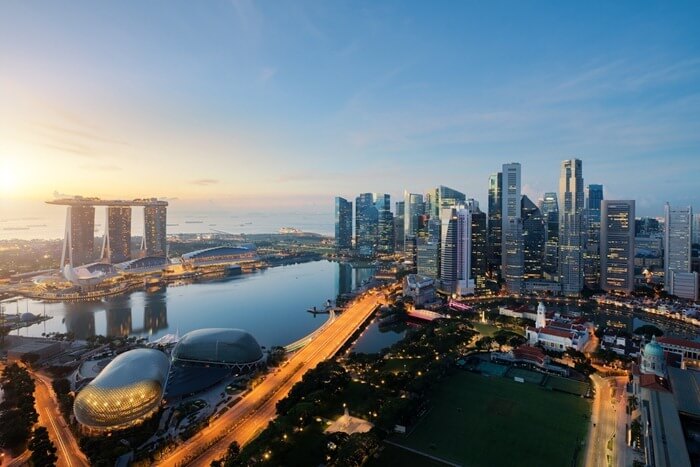 The top 5 countries with the most reliable internet in the world are led by Singapore. In this state, there is no main provider as such. At the moment, there are three kingdoms (three main providers), plus young challengers are shaking the throne. The connection rate in Singapore is one of the highest in the world at 99%. Despite a lot of competition, providers in Singapore exchange traffic; as a result, no more than 3.68% of all providers will lose Internet access due to force majeure.
The top 5 countries with the most reliable internet in the world are led by Singapore. In this state, there is no main provider as such. At the moment, there are three kingdoms (three main providers), plus young challengers are shaking the throne. The connection rate in Singapore is one of the highest in the world at 99%. Despite a lot of competition, providers in Singapore exchange traffic; as a result, no more than 3.68% of all providers will lose Internet access due to force majeure.
4. Switzerland
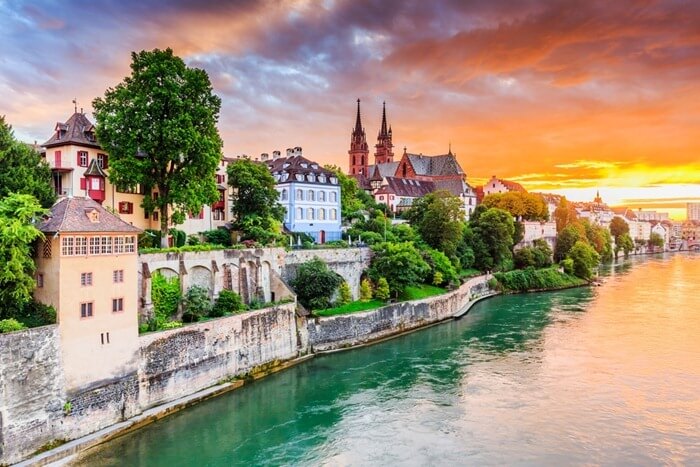 Although Switzerland is a small country, there is no main provider as such. In the homeland of William Tell, there are already eight largest providers. Despite (and perhaps because of this) the Swiss are proud of the fact that they have one of the fastest Internet connections in the world. And one of the most sustainable. If something goes wrong, no more than 3.55% of providers and their users will suffer.
Although Switzerland is a small country, there is no main provider as such. In the homeland of William Tell, there are already eight largest providers. Despite (and perhaps because of this) the Swiss are proud of the fact that they have one of the fastest Internet connections in the world. And one of the most sustainable. If something goes wrong, no more than 3.55% of providers and their users will suffer.
3. Brazil
 The third place in the list of Qrator Labs is again a developing country. Although no more than 45% of the population is confused on the world wide web, the internet is widely used in Brazil. For example, over 99% of tax forms can be completed online. Internet access points are available in all post offices, which is especially convenient in rural areas of the country. In the event of a massive DDoS attack, the tax form will not be able to fill out those connected to 3.39% of the total number of providers.
The third place in the list of Qrator Labs is again a developing country. Although no more than 45% of the population is confused on the world wide web, the internet is widely used in Brazil. For example, over 99% of tax forms can be completed online. Internet access points are available in all post offices, which is especially convenient in rural areas of the country. In the event of a massive DDoS attack, the tax form will not be able to fill out those connected to 3.39% of the total number of providers.
2. United Kingdom
 Good old England is one of the ancestors of the Internet. Back in the 60s, local scientific laboratories were developing methods of communication between computers. The very first network was created already in 1969 and worked for almost 20 years. Unsurprisingly, in a country with such traditions, the Internet is resilient. At most 3.1% of providers will not be able to release their users to the network if something suddenly happens.
Good old England is one of the ancestors of the Internet. Back in the 60s, local scientific laboratories were developing methods of communication between computers. The very first network was created already in 1969 and worked for almost 20 years. Unsurprisingly, in a country with such traditions, the Internet is resilient. At most 3.1% of providers will not be able to release their users to the network if something suddenly happens.
1. Germany
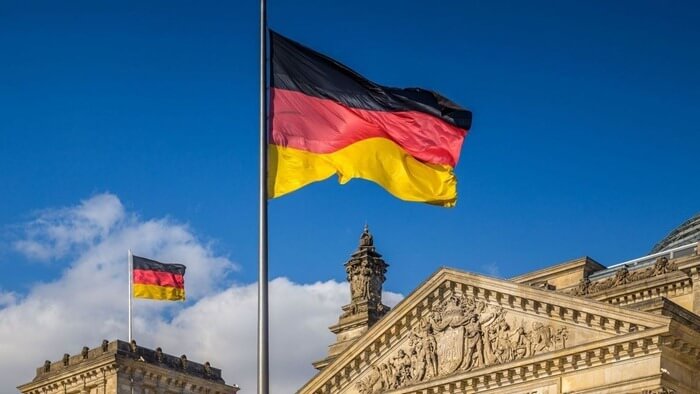 The most important provider in Germany is Deutsche Telekom, the undisputed leader in the Internet communications market. Other providers usually either make local area networks or buy their stream access from DSL providers. Despite the monopoly, Germany ranks first in the world in terms of the stability of communication over the IPv4 protocol. If Deutsche Telekom gets into trouble, no more than 2.26% of providers will lose access to the flow of information.
The most important provider in Germany is Deutsche Telekom, the undisputed leader in the Internet communications market. Other providers usually either make local area networks or buy their stream access from DSL providers. Despite the monopoly, Germany ranks first in the world in terms of the stability of communication over the IPv4 protocol. If Deutsche Telekom gets into trouble, no more than 2.26% of providers will lose access to the flow of information.
In addition to technical capabilities, the formation of links and the exchange of traffic between providers is also hampered by monetary considerations. As every capitalist knows, market segmentation is a guarantee of future profits. But despite the obstacles, the networked world is still becoming safer. If in 2017, according to Qrator Labs experts, in the event of a failure of the main provider in the world, 41% of systems will lose their connection, then in 2018 - 38%.
Internet reliability in Russia
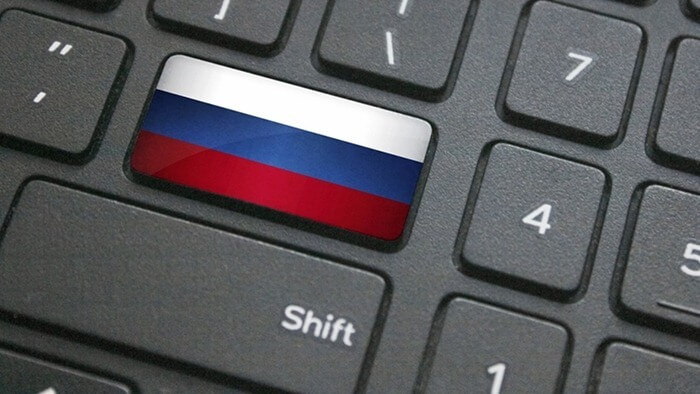 The most important provider of the Russian Internet, which gamers like to blame for their gaming failures, is Rostelecom. On the whole, Russian users are well protected - if Rostelecom suddenly falls and cannot rise, 5.27% of providers will lose their connection with the world. Agree, this is not so much.
The most important provider of the Russian Internet, which gamers like to blame for their gaming failures, is Rostelecom. On the whole, Russian users are well protected - if Rostelecom suddenly falls and cannot rise, 5.27% of providers will lose their connection with the world. Agree, this is not so much.
According to this principle, Russia is inferior to Ukraine (there the number of "victims" will be less - 5.1%) and slightly ahead of Poland (5.43%) and, surprisingly, Hong Kong (5.57%). These countries are ranked 13th, 12th, 14th and 15th, respectively.

